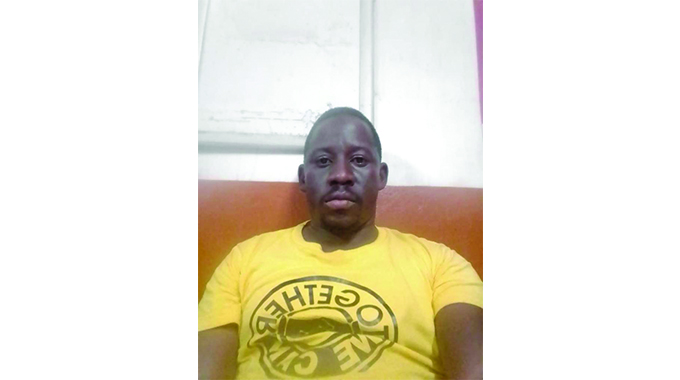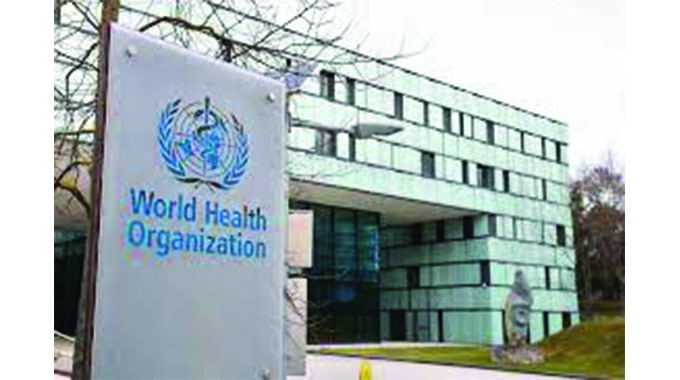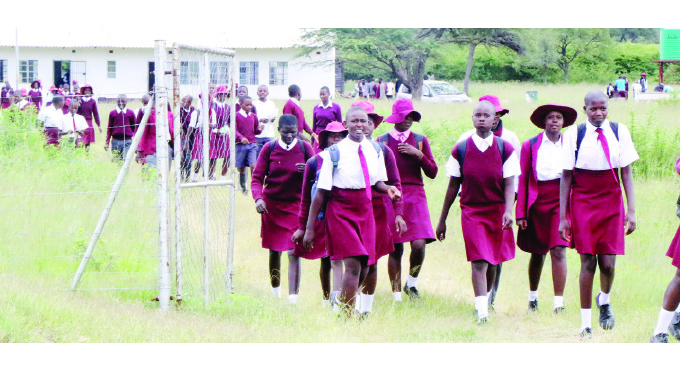TB survivor had to overcome stigma, discrimination

Thandeka Moyo-Ndlovu, Senior Health Reporter
QUITTING alcohol is what Mr Simbarashe Zifungo of Bulawayo treasures most after he was diagnosed with tuberculosis (TB) at the height of Covid-19.
The diagnosis changed the dynamics of his lifestyle, and it was critical for Mr Zifungo to strictly adhere to that for him to recover from the deadly disease.
TB kills about 6 300 Zimbabweans every year. TB deaths and infections increased during the Covid-19 pandemic.
According to the World Health Organisation (WHO) 2022 Global TB report, an estimated 10,6 million people fell ill with TB in 2021, an increase of 4,5 percent from 2020, and 1,6 million people died from the disease (including 187 000 among HIV-positive patients).

World Health Organization (WHO)
Despite testing HIV negative, Mr Zifungo continued to lose weight at an alarming level.
Friends and close relatives started avoiding him due to his emaciated body until a friend suggested that he tests for TB and the results came out positive.
Mr Zifungo decided to move from Bulawayo to Gwanda to be closer to his immediate family members and began a six-month treatment course.
He was forced to quit beer, which he loved dearly, and was forced to adhere to a strict diet to increase his chances of survival.
As Zimbabwe marked World TB Day last Friday, Mr Zifungo, a survivor, shared his testimony.
“I started my treatment course in November 2021 and completed it last year. It was a struggle as I had to make tough choices like quitting alcohol and religiously adhering to medication,” he said.
“It wasn’t easy as I had to toughen up, but I am happy to say I prioritised my health and today I am a living testimony that indeed TB is curable and doesn’t have to kill anyone.”
Tuberculosis is one of the leading causes of death in Zimbabwe.
Although Zimbabwe remains on the list for tuberculosis/HIV and multi-drug resistant tuberculosis, the country has made sufficient strides against the disease to have been removed from the list of high-burden countries for drug-sensitive tuberculosis.
The country has also embraced WHO-recommended diagnostics such as rapid molecular tests, which have been deployed in all secondary-level health facilities, and the adoption of diagnostic equipment to detect second-line drug resistance has further boosted case detection.
Unlike some who default on treatment upon being diagnosed with TB, Mr Zifungo said he adhered to it to avoid the risk of developing drug-resistant strains of TB.
The TB survivor said he suffered stigma with some of his friends discriminating against him for fear of contracting the disease.

“TB is like any other disease. Yes, I lost a lot of weight but managed to survive because of the support I got from my family. I had my own cup plate and spoon which wasn’t shared, but they showed me great love and support until I recovered,” he said.
Mr Zifungo urged citizens to go for TB screening and testing and once diagnosed they should adhere to medication.
“There still exists stigma around TB, but I encourage everyone to get tested early, start treatment, and adhere to it. I also would like to pay homage to village health workers who visited and supported me throughout my recovery journey,” he said.
In a statement, the executive director of the Community Working Group on Health (CWGH), Mr Itai Rusike said although Zimbabwe has managed to halve deaths, more funding is needed to fight TB.
“TB remains a major obstacle to attaining the SDG vision on health, development, and prosperity for all in Zimbabwe. Our country has an estimated 21 000 new cases of TB each year, and 3,1 percent of these are drug resistant,” he said.
He said about 6 300 Zimbabweans die of TB each year despite the disease being preventable and curable.
“Funding for research on TB in Zimbabwe is minimal, and new tools to prevent, diagnose, and treat TB are urgently required. There is an opportunity to leverage Covid-19 infrastructure and investments to improve the TB response,” said Mr Rusike.
“There is a need to integrate TB and Covid-19 testing and tracing, and strengthen efforts to overcome the barriers that people continue to face when accessing TB services.”
Mr Rusike called on Government to engage communities in planning and implementing strong, integrated TB and Covid-19 mitigation and response measures.
“In addition, there is a need to increase financing for TB prevention and care, innovations in care delivery, and research and development, including for new TB vaccines to prevent the development of Drug Resistant TB. The theme brings attention to tuberculosis and our collective power to end the disease by 2030, and therefore reach the SDG goals,” he said.
“It brings hope and builds on the amazing work done in 2022 by Zimbabwe as one of the TB high-burden countries to recover from the impact of Covid-19 while ensuring access to TB treatment and prevention.–@thamamoe











Comments